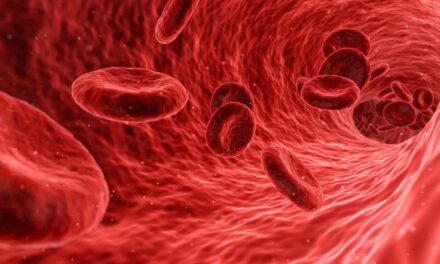Antibiotic resistance has emerged as one of the most pressing public health challenges worldwide, with some countries reporting resistance rates as high as 42% for common bacterial strains. The Centers for Disease Control and Prevention (CDC) estimates that the United States alone faces over 2 million antibiotic-resistant infections each year. As traditional antibiotics lose their effectiveness, researchers are urgently seeking innovative solutions. A groundbreaking study published in PLOS Biology sheds light on one such promising avenue: peptide therapy.
The study focuses on the role of antimicrobial peptides (AMPs) as a potential strategy to combat bacterial infections, particularly those caused by antibiotic-resistant pathogens. AMPs are naturally occurring proteins that possess the ability to kill or inhibit the growth of bacteria. However, with the rise of resistant bacterial strains, scientists have been exploring new ways to harness the power of AMPs in the fight against these superbugs.
The research team behind the PLOS Biology study investigated the effectiveness of newly developed random antimicrobial peptide mixtures, which have the potential to outperform single-sequence antimicrobial peptides in preventing the evolution of resistance. The study primarily focused on the ESKAPE pathogen Pseudomonas aeruginosa, a bacterium notorious for causing difficult-to-treat infections. This pathogen is known for its resistance to a wide range of drug classes and its ability to form biofilms, which make it even more challenging to eliminate.
According to the study’s findings, the random antimicrobial peptide mixtures significantly reduced the risk of resistance evolution compared to single peptides. These mixtures also showed promise in preventing cross-resistance to other treatments while maintaining or even enhancing drug sensitivity. This breakthrough suggests that such peptide combinations could become a valuable tool in addressing the growing threat of antibiotic resistance.
The researchers advocate for the use of random antimicrobial peptide cocktails over single peptides, as resistance has been observed to develop in vitro against individual peptides. The next step, however, is to explore how these peptide mixtures interact with the host immune system. Peptides that work synergistically with the body’s immune response could help reduce the required dosage and minimize potential side effects.
As antibiotic resistance continues to pose a grave threat to global health, the study’s findings provide a ray of hope. Peptide therapy, especially in the form of random peptide cocktails, may hold the key to overcoming one of the most significant medical challenges of our time. Further research is needed, but the potential for this novel approach to revolutionize the treatment of bacterial infections is immense, offering a much-needed alternative to conventional antibiotics.











